-
Standard Delivery
Choose Standard Delivery option during checkout
5-6 Days
-
Express Delivery
Choose Express Delivery option during checkout
4-5 Days
 Dona (प्रसाद दोना)
Dona (प्रसाद दोना)[google-translator]
Hurry and get discounts on all Pujan Samagri Items
Promo1
₹ 191.00 Original price was: ₹ 191.00.₹ 91.00Current price is: ₹ 91.00.
43 in stock
43 in stock
Choose Standard Delivery option during checkout
5-6 Days
Choose Express Delivery option during checkout
4-5 Days
Payment Methods:
| Weight | 20 g |
|---|---|
| Dimensions | 13 cm |
Elevate your daily puja rituals and offerings with this handcrafted copper puja spoon, also known as an Aachmani spoon. A sacred tool in Hindu tradition, this spoon embodies purity, positive energy, and the transformative power of water. Its elegant design and authentic copper construction make it a beautiful and meaningful addition to your spiritual practice.
The Significance of Copper: Hindus highly revere copper for its purifying properties and its ability to channel positive energy. They believe it neutralizes negative vibrations and creates a spiritually conducive environment.
Ayurvedic Benefits: Ayurveda, an ancient Indian healing system, also recognizes copper for its potential health benefits. Practitioners believe it supports digestion, balances the doshas, and promotes overall well-being.
The Aachmani Spoon in Hindu Rituals
The Aachmani spoon, a seemingly simple tool, holds profound significance within the context of Hindu rituals. It serves as a conduit for reverence, purification, and spiritual connection. Here’s how it’s used in different practices:
Achamanam: Perhaps the most fundamental use of the Aachmani spoon is in the ritual of “achamanam.” This purification process involves taking small sips of consecrated water from the spoon. It’s often performed before commencing a puja, yagna, or other religious ceremonies to prepare oneself mentally and spiritually.
Abhishekam: During elaborate worship rituals known as “abhishekam,” the Aachmani spoon is used to bathe deities with sacred substances. These offerings might include milk, yogurt, honey, ghee (clarified butter), or sanctified water infused with herbs and flowers.
Offering Water to Deities: Even in simpler daily pujas, the Aachmani spoon is used to present water as a symbolic offering to the deities. This gesture represents hospitality, devotion, and a recognition of the divine presence.
Charanamrita Preparation and Consumption: Charanamrita, the sanctified water collected after washing a deity’s feet, holds special reverence. The Aachmani spoon is used both to offer the water during the washing process and later to respectfully sip this charanamrita as a sacred blessing.
Cleansing, Humility, and Divine Connection
The act of using an Aachmani spoon goes beyond mere practicality. It carries deep spiritual meaning:
Cleansing: The inherent purifying properties of water, especially when sanctified, are amplified when offered through the Aachmani spoon. It represents not only physical cleansing but a deeper purification of the mind and soul, washing away negative energies and preparing one for spiritual connection.
Humility: The simple act of taking water from the spoon, rather than drinking directly from a cup, signifies humility before the divine. It fosters an attitude of egoless devotion.
Surrender: The offering of water represents a symbolic surrender of the self to the divine force. It’s an act of recognition that all sustenance and blessings flow from a higher source.
Versatility within Rituals
The Aachmani spoon isn’t limited to major ceremonies. Here’s how its versatility shines through:
Daily Worship: Many individuals incorporate the Aachmani spoon into their personal daily puja rituals, using it to perform achamanam, simple water offerings, or consume charanamrita.
Purification Rites: Beyond offering water, the Aachmani spoon may be used to sprinkle sanctified water for purifying a space, objects, or even oneself before engaging with sacred practices.
The Act of Purification
Purpose: Achamanam is a fundamental purification ritual performed before commencing any major puja or religious activity. It signifies the practitioner cleansing themselves internally and externally to prepare for spiritual engagement.
Procedure:
Sacred Offerings to the Divine
Receiving Divine Grace
Purpose: Charanamrit, literally meaning “water from the feet”, is the sanctified water collected after ritually washing a deity’s feet during worship. It is imbued with the divine essence and offers immense blessings.
Preparation:
Consumption:
A Connection with the Divine
Why Clean Copper? While beautiful, copper naturally tarnishes over time. This is a result of oxidation when the metal reacts with air and moisture. Tarnish won’t harm the spoon’s function, but regular cleaning keeps it looking its best and ensures its purity.
Lemon and Salt Method:
Specialized Copper Cleaner:
You must be logged in to post a review.
In stock
In stock
In stock
In stock
In stock
In stock
 Dona (प्रसाद हेतु दोना)
Dona (प्रसाद हेतु दोना)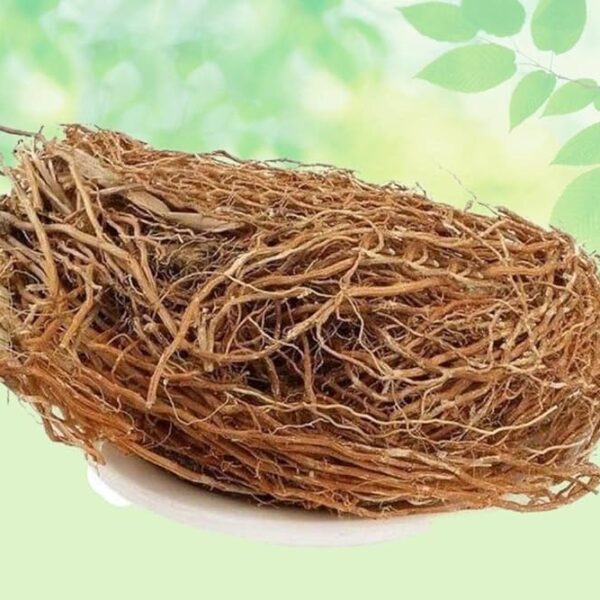 Khas Root- Khus Jad - Ushira - Vetiver Roots - Vetiveria Zizanioides - Ramacham, 50 Grams
Khas Root- Khus Jad - Ushira - Vetiver Roots - Vetiveria Zizanioides - Ramacham, 50 Grams
 Durga Maa Murti - Marble Dust - 12 Inches
₹ 9,999.00 – ₹ 11,499.00
Durga Maa Murti - Marble Dust - 12 Inches
₹ 9,999.00 – ₹ 11,499.00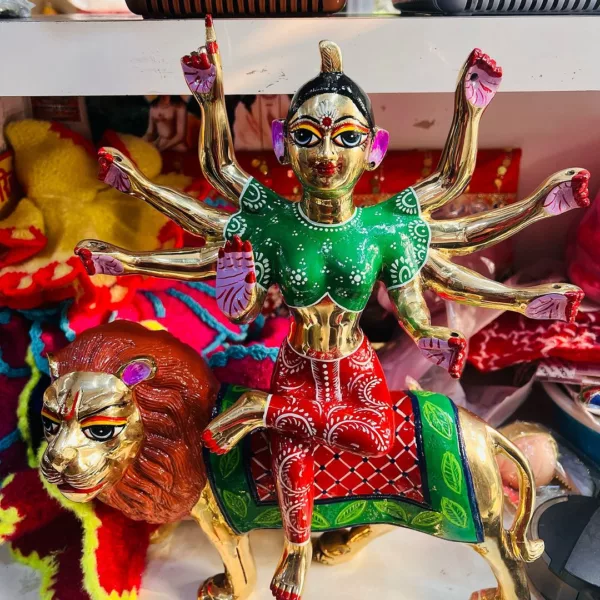 Durga Mata Murti - Fully Decorated - 15 Inches
Durga Mata Murti - Fully Decorated - 15 Inches
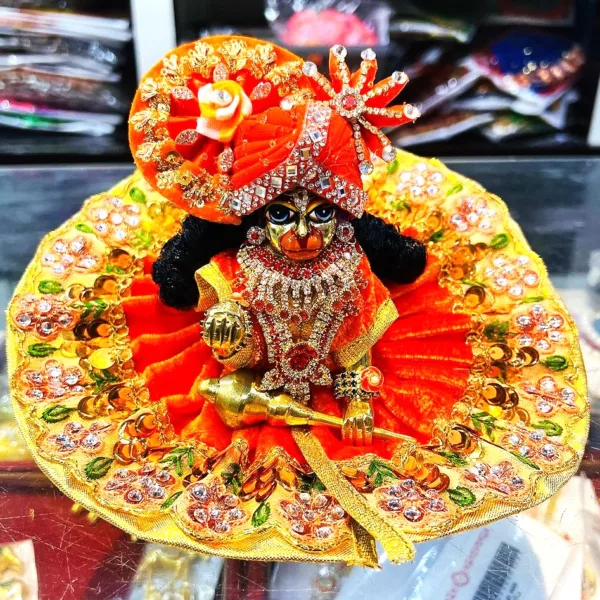 Bal Hanuman Murti - 4 No. - Full Ready
Bal Hanuman Murti - 4 No. - Full Ready
 Laddu Gopal Ji - 16 No.
Laddu Gopal Ji - 16 No.
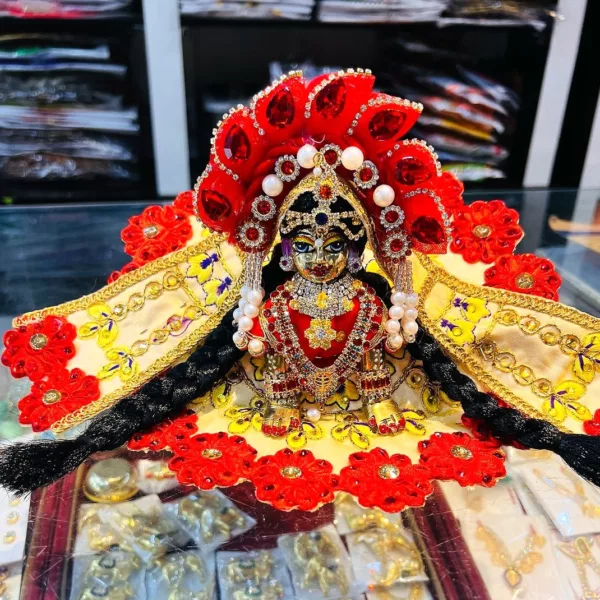 Radha Rani Sarkar Murti- 4 No. - Full Ready
Radha Rani Sarkar Murti- 4 No. - Full Ready
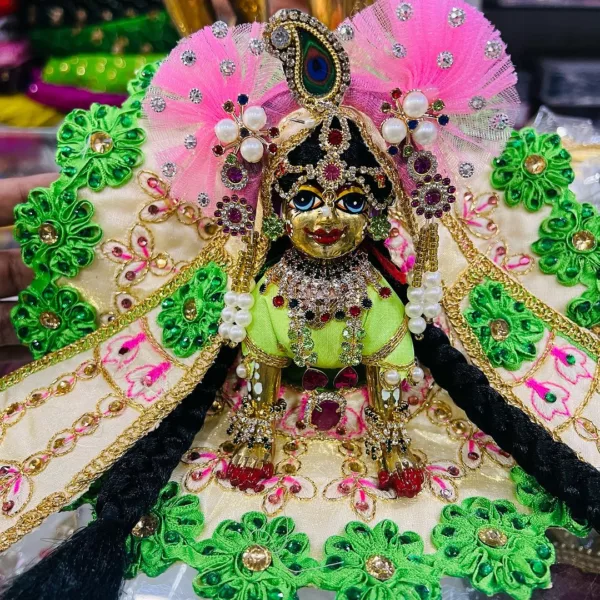 Radha Rani Sarkar Murti- 6 No. - Full Ready
Radha Rani Sarkar Murti- 6 No. - Full Ready
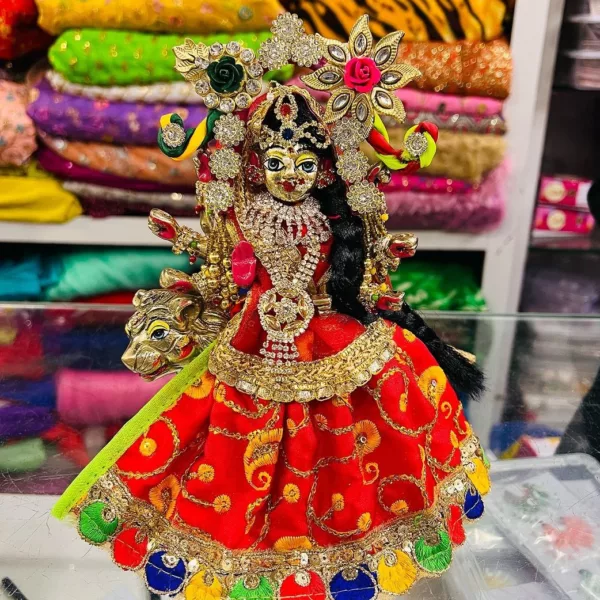 Brass Durga Maa Murti - 8 Inches - | Dressed | Gift-Ready [2024]
Brass Durga Maa Murti - 8 Inches - | Dressed | Gift-Ready [2024]
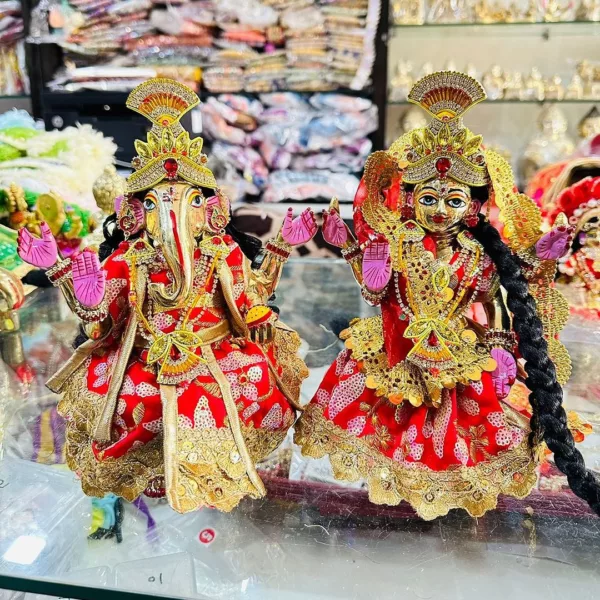 Laxmi Ganesh Ji Murti - Made of Pure Brass- 9 Inches
Laxmi Ganesh Ji Murti - Made of Pure Brass- 9 Inches
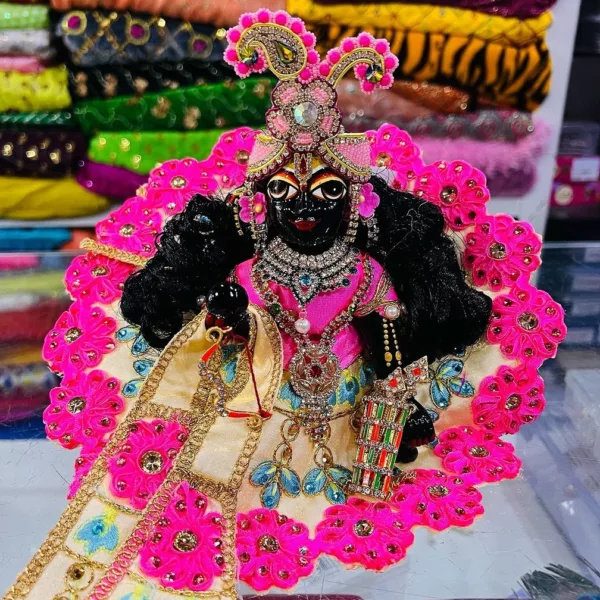 Ram Lala Murti - Bal Roop- 6 Inches - Full Ready
Ram Lala Murti - Bal Roop- 6 Inches - Full Ready
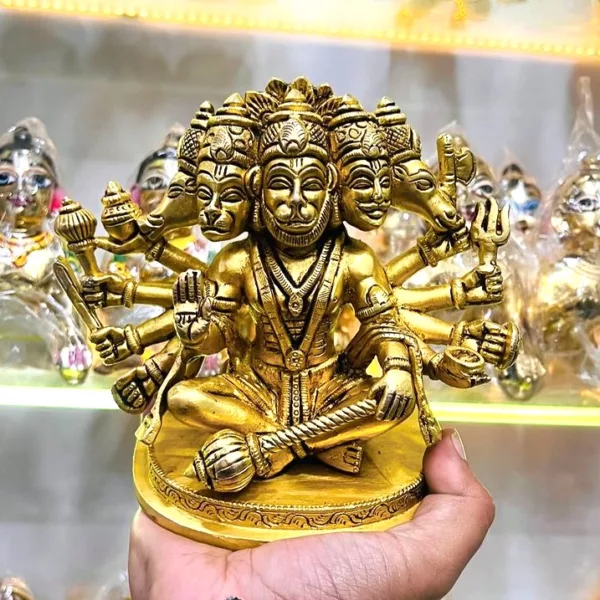 Panchmukhi Hanuman Murti
₹ 1,499.00 – ₹ 6,999.00
Panchmukhi Hanuman Murti
₹ 1,499.00 – ₹ 6,999.00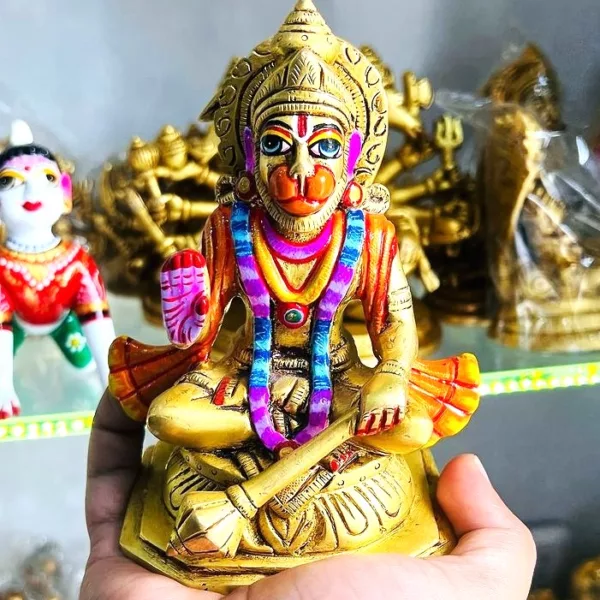 Hanuman ji vigrah - 5.5 Inches - Made of Brass
Hanuman ji vigrah - 5.5 Inches - Made of Brass
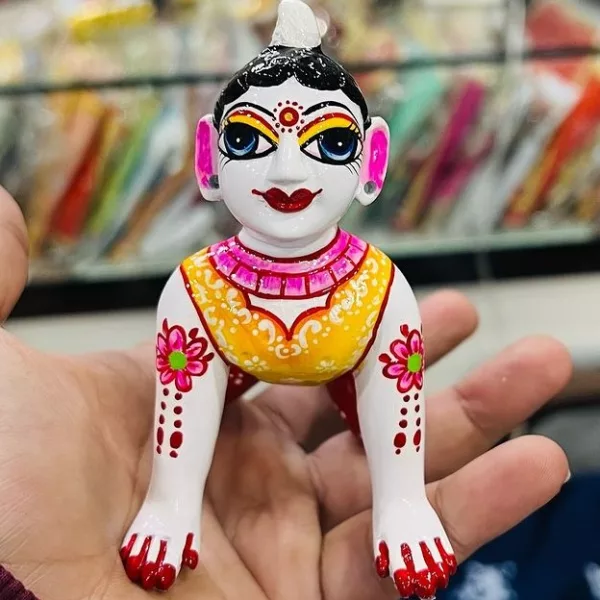 Radha Rani Sarkar Decorated- Made of Pure Brass - 4 no [2024]
Radha Rani Sarkar Decorated- Made of Pure Brass - 4 no [2024]
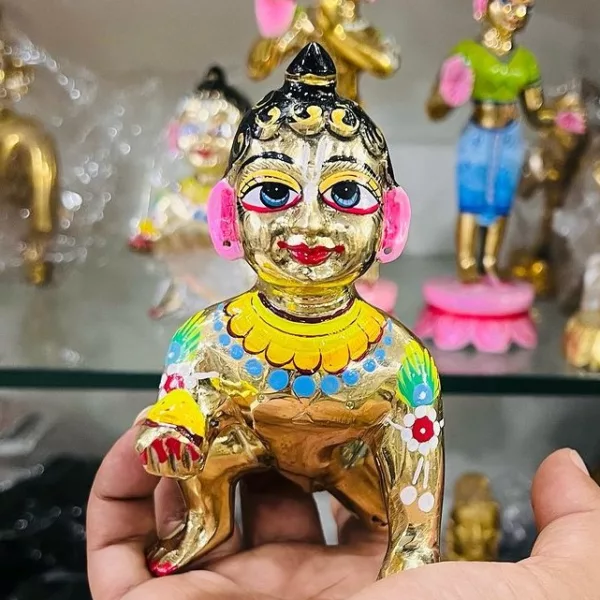 Laddoo Gopal Murti- Made of Pure Brass - 6 No.
Laddoo Gopal Murti- Made of Pure Brass - 6 No.
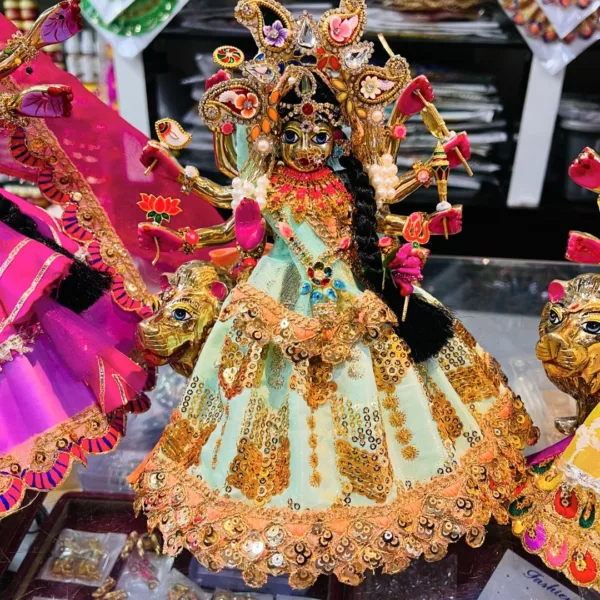 Brass Durga Maa Murti - 8 Inches - | Dressed | Gift-Ready [2024]
₹ 5,999.00 – ₹ 6,999.00
Brass Durga Maa Murti - 8 Inches - | Dressed | Gift-Ready [2024]
₹ 5,999.00 – ₹ 6,999.00About Us
Pujagoodies.com is a curated spiritual commerce marketplace offering a wide range of products and devotional content for devotees. Our platform aims to be a one-stop shop for all spiritual needs, including clothing, utensils, handicrafts, puja samagri, and more. We are committed to providing a seamless shopping experience, fostering trust and authenticity in the spiritual goods industry.
No account yet?
Create an Account
Reviews
There are no reviews yet